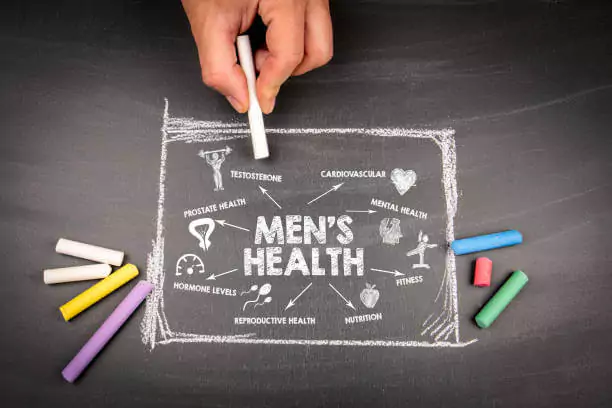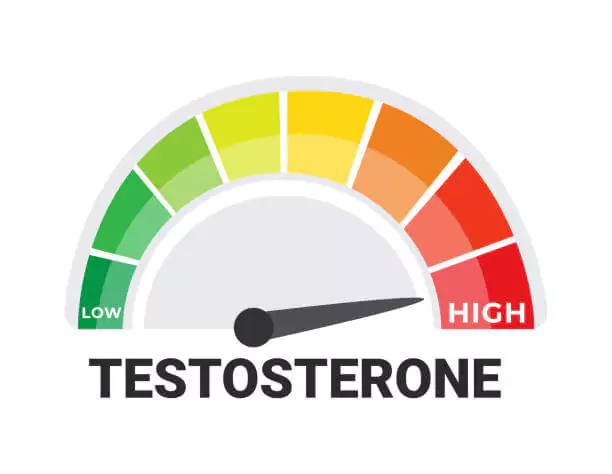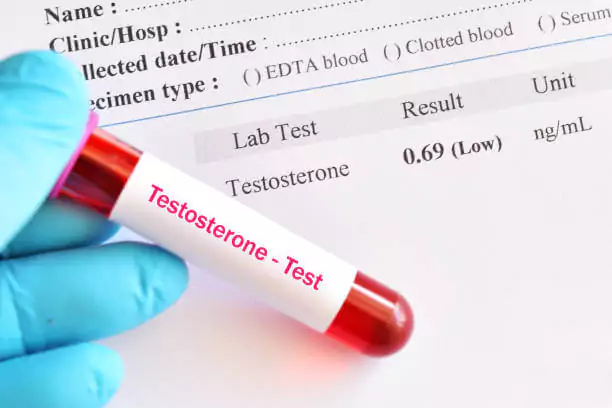Sexual Problems
Testosterone and Its Role in Male Sexual Health
In the realm of male sexual health, one key player takes center stage—testosterone. This hormone, often associated with masculinity, plays a pivotal role in various aspects of a man’s life. From influencing libido to contributing to overall well-being, understanding testosterone is crucial for maintaining a healthy and satisfying life.
Introduction
Definition of Testosterone
Testosterone is a sex hormone produced primarily in the testicles, although small amounts are also secreted by the adrenal glands. It belongs to a class of hormones known as androgens and plays a vital role in the development of male reproductive tissues.
Significance in Male Sexual Health
While testosterone has a broad range of functions, its impact on male sexual health is particularly noteworthy. It influences everything from the onset of puberty to sexual performance and overall well-being.
Purpose of the Article
This article aims to delve into the intricate web of testosterone and its multifaceted role in male sexual health. From understanding the basics of testosterone to exploring ways to maintain optimal levels, we’ll embark on a journey to demystify this vital hormone.
The Basics of Testosterone
Hormone Production and Release
Testosterone production begins in the testicles, orchestrated by the brain’s hypothalamus and pituitary gland. This delicate hormonal dance ensures a steady release of testosterone throughout a man’s life.
Role in Puberty and Development
During puberty, testosterone levels surge, leading to the development of secondary sexual characteristics like facial hair, deepening of the voice, and muscle growth. These changes are crucial for the maturation of the male reproductive system.
Testosterone Levels Throughout Life
While testosterone peaks in early adulthood, it gradually declines with age. Understanding these fluctuations is essential for comprehending the various effects testosterone has on the body at different life stages.
Testosterone and Libido
Impact on Sex Drive

Libido, often referred to as sex drive, is intricately linked to testosterone levels. Optimal levels of testosterone contribute to a healthy and robust sexual appetite.
Connection to Sexual Performance
Beyond desire, testosterone also plays a role in sexual performance. From sustaining erections to overall sexual satisfaction, the hormone’s influence is profound.
Maintaining Healthy Libido Levels
Exploring lifestyle choices and habits that support healthy testosterone levels is crucial for maintaining a vibrant libido. From regular exercise to a balanced diet, small changes can yield significant benefits.
Testosterone and Erectile Function
Influence on Erections

Testosterone contributes to the physiological mechanisms that lead to erections. Understanding this connection is vital for addressing issues related to erectile function.
Addressing Erectile Dysfunction
For men grappling with erectile dysfunction, a comprehensive approach that considers testosterone levels, lifestyle adjustments, and potential medical interventions can make a significant difference.
Lifestyle Factors Affecting Erectile Function
Factors such as stress, poor diet, and lack of exercise can negatively impact testosterone levels, subsequently affecting erectile function. Addressing these lifestyle factors is crucial for overall sexual health.
Physical and Mental Well-being
Testosterone’s Effect on Mood
Beyond its role in sexual health, testosterone also influences mood and emotional well-being. Low testosterone levels may contribute to symptoms like irritability and fatigue.
Muscle Mass and Bone Density
Testosterone is integral to maintaining muscle mass and bone density. Regular physical activity and a healthy lifestyle contribute to optimizing these aspects of overall well-being.
Cognitive Function and Concentration
Research suggests a potential link between testosterone levels and cognitive function. While more studies are needed, the impact of testosterone on concentration and mental clarity is an intriguing aspect of its role.
Factors Affecting Testosterone Levels
Age-related Changes

As men age, testosterone levels naturally decline. Understanding these changes and their implications is vital for proactive health management.
Lifestyle and Diet
Dietary choices, exercise habits, and overall lifestyle significantly influence testosterone levels. Simple adjustments can positively impact hormone balance.
Medical Conditions and Medications
Certain medical conditions and medications can affect testosterone production. Awareness of these factors is crucial for individuals managing chronic health issues.
Natural Ways to Boost Testosterone
Exercise and Physical Activity

Regular physical activity, especially strength training, has been linked to higher testosterone levels. Incorporating exercise into daily routines is a proactive step toward maintaining hormonal balance.
Adequate Sleep
Quality sleep is essential for overall health, including hormonal balance. Prioritizing sufficient and restful sleep supports testosterone production.
Nutrition and Dietary Choices
Certain nutrients, such as vitamin D and zinc, are linked to testosterone production. A well-balanced diet that includes these essential elements contributes to overall health.
Supplements and Medications
Overview of Testosterone Replacement Therapy
In cases of diagnosed low testosterone, replacement therapy may be considered. Understanding the basics, risks, and benefits is crucial for informed decision-making.
Risks and Benefits
While testosterone replacement therapy can be beneficial, it’s not without risks. Balancing potential benefits against possible side effects is essential.
Natural Supplements and Their Efficacy
Numerous natural supplements claim to boost testosterone. We’ll explore some popular options, shedding light on their effectiveness and considerations.
Testosterone Testing
Importance of Regular Monitoring

Regular testing is crucial for understanding one’s testosterone levels and addressing any imbalances promptly. Routine monitoring allows for proactive health management.
Common Testing Methods
1. Blood Tests
Blood tests, specifically measuring total testosterone, free testosterone, and sometimes bioavailable testosterone, are the most common methods. These tests offer a comprehensive overview of a person’s hormonal status.
2. Saliva Tests
Saliva tests are gaining popularity due to their non-invasive nature. However, their reliability and correlation with blood test results are still a subject of ongoing research.
3. Urinary Tests
Urinary tests assess the amount of testosterone excreted through urine. While less common than blood tests, they can provide additional insights into hormone metabolism.
Interpreting Test Results
Understanding your testosterone test results involves more than just looking at numbers. Here’s a brief guide to interpreting common parameters:
1. Total Testosterone Levels
- Normal Range: Typically falls between 300 and 1,000 nanograms per deciliter (ng/dL).
- Low Levels: May indicate hypogonadism or other health issues.
- High Levels: Could be linked to certain conditions or testosterone replacement therapy.
2. Free Testosterone
- Normal Range: Varies but generally represents 1-4% of total testosterone.
- Low Levels: This may suggest issues with hormone-binding proteins or other factors affecting free testosterone.
3. Bioavailable Testosterone
- Normal Range: Reflects the portion of testosterone that is readily available for use by the body.
- Low Levels: This could indicate issues with metabolism or other health factors.
Common Misconceptions about Testosterone
Stereotypes and Myths
A. Testosterone Equals Aggression
Myth: Higher testosterone levels mean increased aggression. Reality: While testosterone is linked to assertiveness, it does not directly correlate with aggression. Context and individual differences play crucial roles.
B. Testosterone and Violence
Myth: Elevated testosterone levels lead to violent behavior. Reality: Scientific evidence does not support a direct causation between testosterone and violent tendencies.
Clarifying Misinformation
A. Testosterone Boosters as Magic Solutions
Myth: Over-the-counter testosterone boosters can miraculously solve hormonal issues. Reality: Natural supplements may have some benefits, but their efficacy varies, and they are not a cure-all.
B. Testosterone Replacement Therapy is Always Risky
Myth: Testosterone replacement therapy always poses significant risks. Reality: When administered under medical supervision, the risks can be managed, and the therapy can provide benefits for those with diagnosed low testosterone.
Promoting Understanding
A. Importance of Balanced Hormones
Understanding that hormonal balance, rather than extreme highs or lows, is crucial for overall health and well-being.
B. Individual Variations in Testosterone Levels
Recognizing that ‘normal’ testosterone levels can vary among individuals and are influenced by factors like age, genetics, and overall health.
Conclusion
Recap of Key Points
In navigating the complex landscape of testosterone and its role in male sexual health, key takeaways include understanding the hormone’s influence on libido, erectile function, and overall well-being.
Emphasizing the Importance of Testosterone
Recognizing the significance of maintaining optimal testosterone levels is not just about sexual health but extends to physical, mental, and emotional well-being.
Encouragement for Seeking Professional Advice
For individuals with concerns about their testosterone levels or those considering interventions, seeking professional medical advice is paramount. A healthcare provider can provide personalized guidance based on comprehensive assessments.

